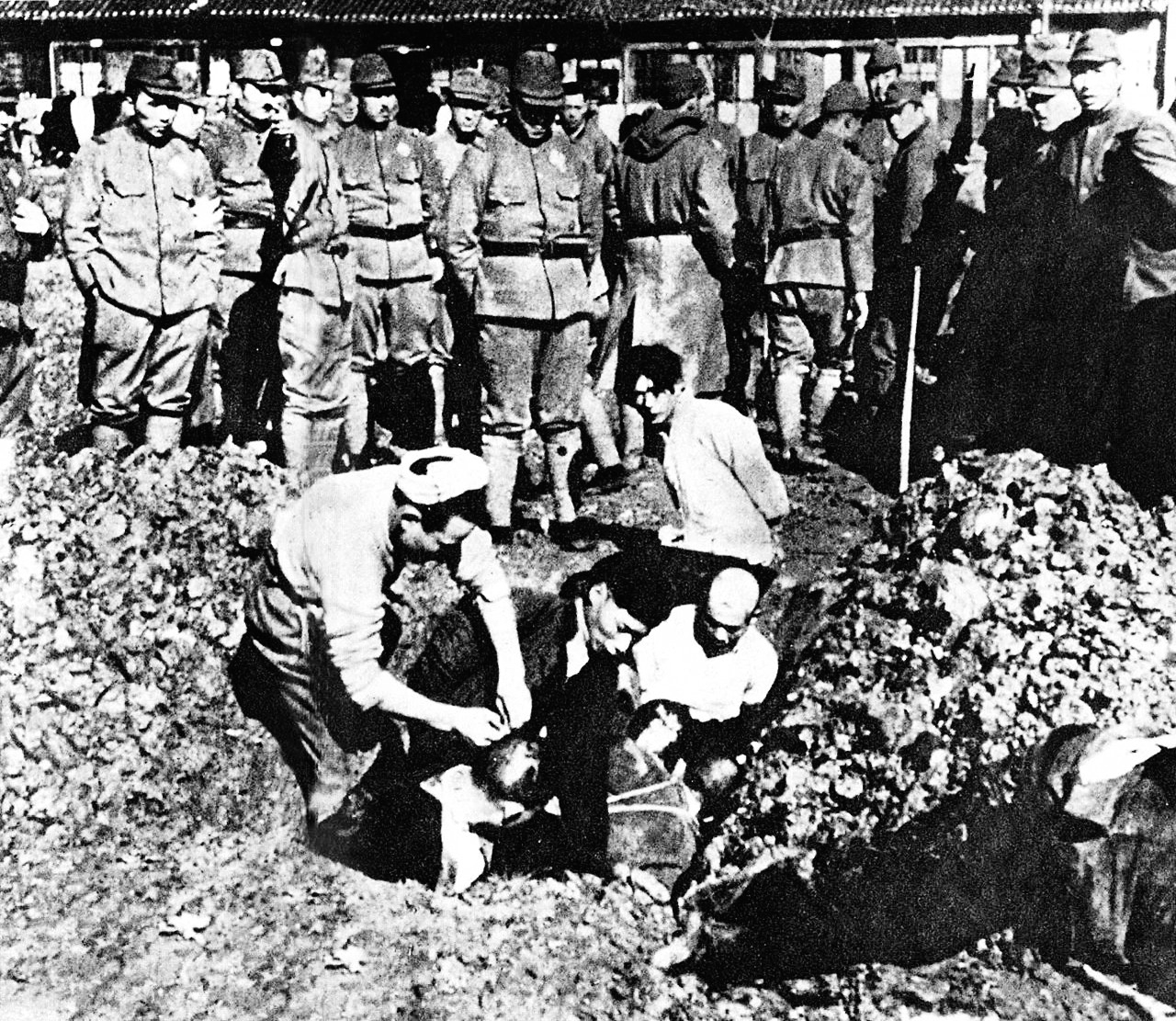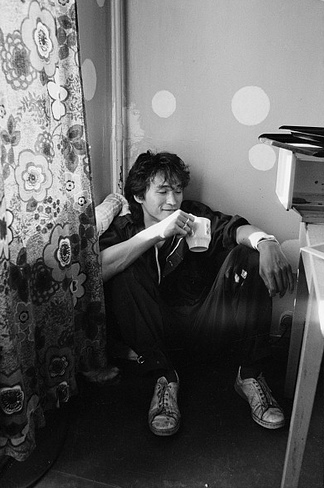|
Shinhanchon Incident
The Sinhanch'on Incident () or the April Disaster () was a massacre of Korean civilians by Japanese soldiers in the Korean enclave Sinhanch'on, Vladivostok, Far Eastern Republic beginning on April 4, 1920. The massacre lasted for several days. It is not known how many were killed, although one estimate puts the number at several hundred. Background Since the late 19th century, Koreans moved into the Russian Far East in search of economic opportunities. After Japan colonized Korea in 1910, the enclave Sinhanch'on in Vladivostok became a hotbed for the Korean independence movement. Famous independence activist and general Hong Beom-do used the village as his base. Other notable activists Shin Chae-ho and also stayed in the village. Various institutions, including schools and newspapers, were created for the community. When the Russian October Revolution broke out in 1917, the region became destabilized. The Bolsheviks massacred Japanese civilians and attacked military ins ... [...More Info...] [...Related Items...] OR: [Wikipedia] [Google] [Baidu] |
Koreans
Koreans ( South Korean: , , North Korean: , ; see names of Korea) are an East Asian ethnic group native to the Korean Peninsula. Koreans mainly live in the two Korean nation states: North Korea and South Korea (collectively and simply referred to as just Korea). They are also an officially recognized ethnic minority in other Asian countries; such as China, Japan, Kazakhstan and Uzbekistan. Koreans also form sizeable communities in Europe, specifically in Russia, Germany, United Kingdom, and France. Over the course of the 20th century, Korean communities have also formed in the Americas (especially in the United States and Canada) and Oceania. As of 2021, there were an estimated 7.3 million ethnic Koreans residing outside Korea. Etymology South Koreans refer to themselves as Hanguk-in(Korean: 한국인, Hanja: 韓國人) or Hanguk-saram (''Korean: 한국 사람''), both of which mean "people of the Han". When including members of the Korean diaspora, Koreans often use the ... [...More Info...] [...Related Items...] OR: [Wikipedia] [Google] [Baidu] |
Ussuriysk
Ussuriysk (russian: Уссури́йск) is a types of inhabited localities in Russia, city in Primorsky Krai, Russia, located in the fertile valley of the Razdolnaya River, north of Vladivostok, the administrative center of the krai, and about from both the China–Russia border and the Pacific Ocean. Population: It was previously known as ''Nikolskoye'' (until 1898), ''Nikolsk-Ussuriysky'' (until 1935), ''Voroshilov'' (until 1957). History Medieval history The area of what now is Ussuriysk was settled by Yulou Mohe people, Mohe tribes. From the mid-9th century, it became Solbin-bu of the Balhae Kingdom. It is then populated by the Dōnghǎi Jurchen people, Jurchens, under control of Liao dynasty. The city then become capital of Jīn Dynasty's Sùpín circuit (速頻路). Then it went under control of Yuan, Ming and Qing dynasties respectively and known as (). Modern era In 1866, the settlement of Nikolskoye () was founded on the area of today's Ussuriysk, named after ... [...More Info...] [...Related Items...] OR: [Wikipedia] [Google] [Baidu] |
Japanese War Crimes
The Empire of Japan committed war crimes in many Asian-Pacific countries during the period of Japanese militarism, Japanese imperialism, primarily during the Second Sino-Japanese War, Second Sino-Japanese and Pacific Wars. These incidents have been described as an "Asian Holocaust". Some war crimes were committed by Japanese military personnel during the late 19th century, but most were committed during the first part of the Shōwa (1926–1989), Shōwa era, the name given to the reign of Emperor of Japan, Emperor Hirohito. Under Emperor Hirohito, the Imperial Japanese Army (IJA) and the Imperial Japanese Navy (IJN) perpetrated numerous war crimes which resulted in the deaths of millions of people. Estimates of the number of deaths range from three to 30 million through Nanjing Massacre, massacres, Unit 731, human experimentation, Vietnamese famine of 1945, starvation, and Slavery in Japan#World War II, forced labor directly perpetrated or condoned by the Japanese military and go ... [...More Info...] [...Related Items...] OR: [Wikipedia] [Google] [Baidu] |
Koryo-saram History
Koryo-saram ( ko, 고려사람; russian: Корё сарам; uk, Корьо-сарам) is the name which ethnic Koreans in the post-Soviet states use to refer to themselves. The term is composed of two Korean words: "", a historical name for Korea, and "", meaning "person" or "people". Approximately 500,000 ethnic Koreans reside in the former Soviet Union, primarily in the now-independent states of Central Asia. There are also large Korean communities in Southern Russia (around Volgograd), Russian Far East (around Vladivostok), the Caucasus and southern Ukraine. These communities can be traced back to the Koreans who were living in the Russian Far East during the late 19th century. There is also a separate ethnic Korean community on the island of Sakhalin, typically referred to as Sakhalin Koreans. Some may identify as Koryo-saram, but many do not. Unlike the communities on the Russian mainland primarily descended from Koreans who arrived in the late 19th century a ... [...More Info...] [...Related Items...] OR: [Wikipedia] [Google] [Baidu] |
1920 In Russia
Events from the year 1920 in Russia Events * * * * * * * * Births * January 14 – Vahe Danielyan, Soviet soldier and concentration camp survivor * July 11 ** Yul Brynner, Russian-born actor, singer, and director ** Zecharia Sitchin, Soviet-born American author * November 29 – Yegor Ligachyov, politician * December 6 – Nikolai Kirtok, World War II fighter pilot Deaths *9 March - Lidija Figner, revolutionary and a prominent member of the Narodniks (born 1853 Events January–March * January 6 – Florida Governor Thomas Brown signs legislation that provides public support for the new East Florida Seminary, leading to the establishment of the University of Florida. * January 8 – Taiping Reb ...) References {{Years in Russia Years of the 20th century in Russia ... [...More Info...] [...Related Items...] OR: [Wikipedia] [Google] [Baidu] |
Korean Independence Movement
The Korean independence movement was a military and diplomatic campaign to achieve the independence of Korea from Japan. After the Japanese annexation of Korea in 1910, Korea's domestic resistance peaked in the March 1st Movement of 1919, which was crushed and sent Korean leaders to flee into China. In China, Korean independence activists built ties with the National Government of the Republic of China which supported the Provisional Government of the Republic of Korea (KPG), as a government in exile. At the same time, the Korean Liberation Army, which operated under the Chinese National Military Council and then the KPG, led attacks against Japan. After the outbreak of the Pacific War in 1941, China became one of the Allies of World War II. In the Second Sino-Japanese War, China attempted to use this influence to assert Allied recognition of the KPG. However, the United States was skeptical of Korean unity and readiness for independence, preferring an international trusteeshi ... [...More Info...] [...Related Items...] OR: [Wikipedia] [Google] [Baidu] |
Mass Murder In 1920
Mass is an intrinsic property of a body. It was traditionally believed to be related to the quantity of matter in a physical body, until the discovery of the atom and particle physics. It was found that different atoms and different elementary particles, theoretically with the same amount of matter, have nonetheless different masses. Mass in modern physics has multiple definitions which are conceptually distinct, but physically equivalent. Mass can be experimentally defined as a measure of the body's inertia, meaning the resistance to acceleration (change of velocity) when a net force is applied. The object's mass also determines the strength of its gravitational attraction to other bodies. The SI base unit of mass is the kilogram (kg). In physics, mass is not the same as weight, even though mass is often determined by measuring the object's weight using a spring scale, rather than balance scale comparing it directly with known masses. An object on the Moon w ... [...More Info...] [...Related Items...] OR: [Wikipedia] [Google] [Baidu] |
Anti-Korean Violence
Anti-Korean sentiment involves hatred or dislike that is directed towards Korean people, culture or either of the two states (North Korea or South Korea) on the Korean Peninsula. Origins Anti-Korean sentiment is present in China, Japan, and within both Koreas, and stems from such issues as nationalism, politics, economic competition, cultural influences, and historical disputes. Anti-North Korean sentiment may be the strongest in Japan, South Korea, and the United States. History In China, it has only come to prominence recently, due to issues such as the 2008 Summer Olympics torch relay; which have accumulated along with other issues over the years. In Japan, modern dislike of North and South Korea can be seen as a form of political and historical issues; these issues are heightened by the North Korean abductions of Japanese citizens and the Liancourt Rocks dispute, respectively. Within Korea, distrust between the two states have existed ever since the end of the Korean ... [...More Info...] [...Related Items...] OR: [Wikipedia] [Google] [Baidu] |
Massacres Committed By Japan
A massacre is the killing of a large number of people or animals, especially those who are not involved in any fighting or have no way of defending themselves. A massacre is generally considered to be morally unacceptable, especially when perpetrated by a group of political actors against defenseless victims. The word is a loan of a French term for "butchery" or "carnage". A "massacre" is not necessarily a "crime against humanity". Other terms with overlapping scope include war crime, pogrom, mass killing, mass murder, and extrajudicial killing. Etymology The modern definition of ''massacre'' as "indiscriminate slaughter, carnage", and the subsequent verb of this form, derive from late 16th century Middle French, evolved from Middle French ''"macacre, macecle"'' meaning "slaughterhouse, butchery". Further origins are dubious, though may be related to Latin ''macellum'' "provisions store, butcher shop". The Middle French word ''macecr'' "butchery, carnage" is first record ... [...More Info...] [...Related Items...] OR: [Wikipedia] [Google] [Baidu] |
Free City Incident
The Svobodny Incident (), also known as the Jayu City Incident () and the Heukha Incident (), occurred on June 28, 1921, in Svobodny, Amur Oblast, Svobodny (Russian for "free") in the Far East Republic (currently Amur Oblast, Russia) where the Korean exiled independence fighters who refused to accept command of the Red Army were surrounded and suppressed. Names The Koreans who lived there called it "Free City." It is also called the Jayu City Incident, the Heukha Incident, and the Black River Incident, between independent army units and the Russian Red Army. Free City is a village called 'Alekseyevsk' located on the Zeya River in Russia, and is currently called 'Svobodny.' It was called 'free poetry' because 'Svoboda' means 'freedom' in Russian. It is also called the 'Heihe Incident,' named after the Chinese border city of Heihe, where the Jeya River flows and joins the Heilongjiang River. Background To avoid the Japanese army, which carried out a large-scale subjugation of the ... [...More Info...] [...Related Items...] OR: [Wikipedia] [Google] [Baidu] |
Yonhap News Agency
Yonhap News Agency is a major South Korean news agency. It is based in Seoul, South Korea. Yonhap provides news articles, pictures and other information to newspapers, TV networks and other media in South Korea. History Yonhap (, , translit. ''Yeonhap''; meaning "united" in Korean) was established on 19 December 1980, through the merger of Hapdong News Agency and Orient Press. The Hapdong News Agency itself emerged in late 1945 out of the short-lived Kukje News, which had operated for two months out of the office of the Domei, the former Japanese news agency that had functioned in Korea during the Japanese colonial era. In 1999 Yonhap took over the Naewoe News Agency. Naewoe was a South Korea government-affiliated organization, created in the mid 1970s, and tasked with publishing information and analysis on North Korea from a South Korean perspective through books and journals. Naewoe was known to have close links with South Korea's intelligence agency, and according to the B ... [...More Info...] [...Related Items...] OR: [Wikipedia] [Google] [Baidu] |




